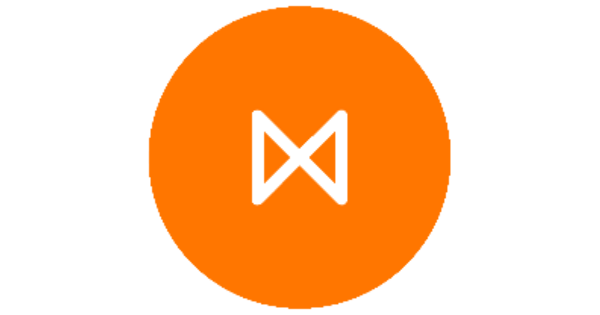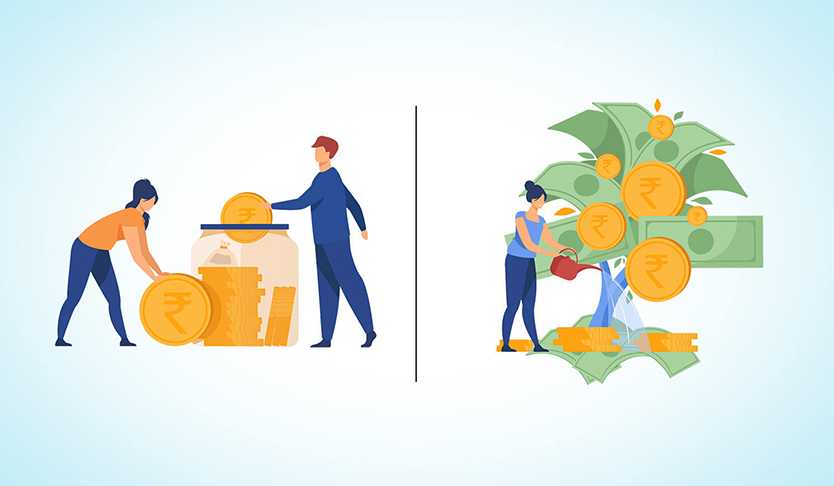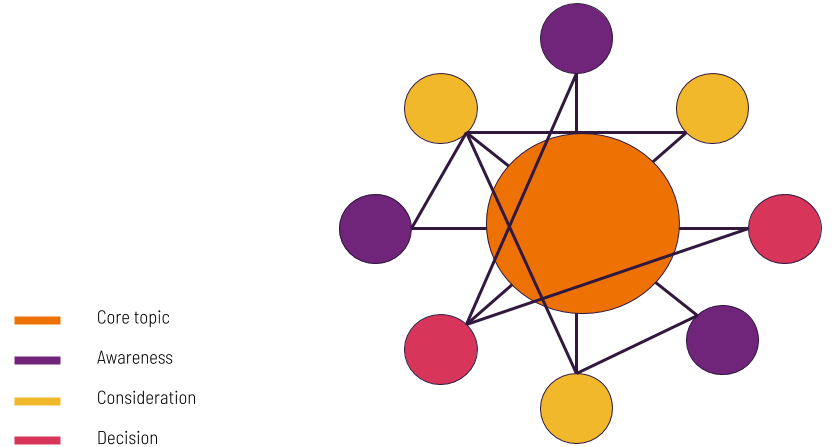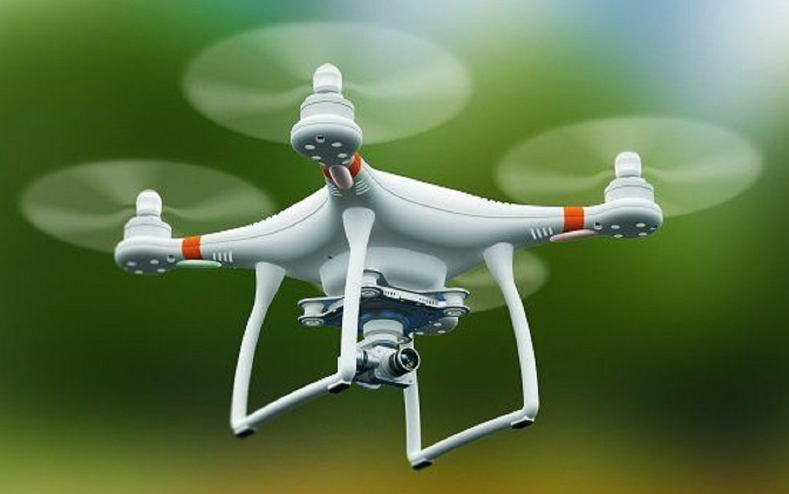If you want to know how to find your niche in the business world, use your current skill set and why coffee can be the best investment… then you should listen to this episode of Forward Thinking.
Monica Wulff is the head of Wework labs, a large global platform that identifies the problems of their customers and connects them with acceleration services. In this episode with Brendan Hill, she discusses why coffee can be the best investment, the importance of negative feedback, how to strengthen your business’ time across social media and more while dropping golden nuggets of podcasts for you to queue.
What you will learn in this episode:

- How data collection is a story of your business
- How small businesses can strengthen time management
- How to spend time with technology to have the best online and offline experience
- Why having coffee is Monica’s best investment
- How to be more aware of cybersecurity
- How trail running is similar to entrepreneurial life
- A collection of podcasts to queue
Notable Quotes:
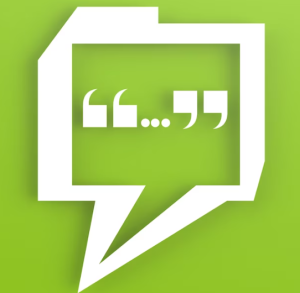
Table of Contents
Toggle- “Structure your day by what your needs are as well as what your business needs are.”
- “It’s about where you put your energy, time and energy, consolidating it down and being okay that you might not be across every platform”
- “Getting negative feedback has been one of the fruitful things I’ve done”
- “Trail running is kind of like entrepreneurial life. Every step is different. Even if you’ve run the same trail 50 times, if the weather has done something strange, you’re going to have a different trail.”
Resources mentioned:
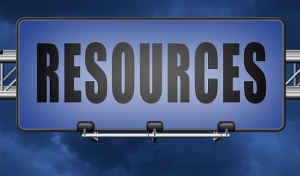
- Startup Muster
- We Work Labs
- Digital Love Podcast
- Plann
- Zenify
- Nancy Pelosi and cyber security
- metigy.com/podcast
- couch to 5k app
- WeCroak
Book and Podcast Recommendations:
- Hooked by Nir Eyal
- Deepwork and Digital Minimalism by Cal Newport
- Switched on Pop
- Full Story from the Guardian
- Guy Roz How I Built This
- No Such Thing As a Fish
- Site Hive
- The Surrender Experiment by Michael A. Singer
- Dolly Parton’s America podcast
- What I think of when I think about running by Ruku Murakami
- The Profit by Khalil Gibran
What business would you build on Mars?

“I have a confession. I didn’t get on the spaceship. I missed the flight. I honestly have no desire to go to Mars, let alone with Elon Musk. I decided to stay on earth and to help the businesses that are actually trying to be sustainable and have social impact and social integrity as well as e-commerce or commerce right now.”
“If I had to go I would be another one of our lab’s members, Sitehive. They have a software and hardware product that captures all the different environmental elements around a construction site. So dust sound, noise, vibration, and they can compute that back to the civil engineers and the engineering teams that are doing construction. So I think that their business would probably be, granted gravity and all those things and space, a useful one. I think there would be like Levi Strauss selling the shovels to the gold diggers.”
You can reach Monica Wulff on:
Transcript
Daren: If you want to know how to find your niche in the business world, use your current skill set and why coffee can be the best investment… then you should listen to this episode of Forward Thinking.
Monica Wulff is the head of Wework labs, a large global platform that identifies the problems of their customers and connects them with solutions. In this episode with Brendan Hill, she discusses the importance of receiving negative feedback, identifying problems, her relationship with social media all the while dropping golden nuggets of podcasts for you to listen to.
Let’s get into the episode.
Brendan: Monica. Welcome to the show. I’m super excited to dive into your extensive career today, but before we started, just wanted to wind back the clock. What was your first exposure to business and startups?
Monica: My first exposure to startups, I was working for a startup and didn’t realize it. So I joined Groupon when it first launched in Australia. Yeah. Really early on. A bunch of the people that are now at The Iconic. I remember from back in those days, and it was a fast growing company and I had no idea about startups and I was just like what is this? And then I moved on from there because I was, got a job with the Australian bureau of statistics.
And then when I really entered into this data ecosystem was a couple of years after that when a friend of mine was working from a coworking space and he was like, come on by. It’s so great. And it’s so much fun. And so I started to go to Friday night pitch events and I just fell in love with it.
I fell in love with everyone being so excited about what they were working on and passionate and smart and how you would. In one evening, traverse conversations around space to eat games and everyone’s trying to help solve each other’s problems.
Brendan: And then how did you find your space in the startup space? How did you find where you fit in the puzzle?
Monica: It came pretty easily, to be honest, through a conversation with a friend around what was missing and what was needed and what did I know? And so what was missing was statistics about the Australian startup ecosystem and what I knew was statistics about Australia and how to do statistics.
Brendan: What is Startup Muster?
Monica: Startup Muster is the largest survey of the Australian startup ecosystem.
Brendan: So you have an extensive background, abs, Startup Muster… At Wework Labs, why are statistics and data so important for early stage businesses and how can they utilize it?
Monica: There are multiple reasons why it’s important. My favorite is the storytelling aspect and the story that you tell others about how your business is going or what your business is achieved. But also the internal story of being able to look at what you’ve done in a year and go, okay.
Because I’ve measured it. I know that I have actually exceeded my goal of how many customers I wanted to bring on board this year. And I have surpassed my revenue goals and I’m in five more countries than I ever thought I was. And that’s a way of being able to be accountable, but also have a very positive spin on you and your business and what you’re trying to achieve.
So they’re great for marketing and telling that story about your founder journey and where your business is heading and the vision that you’re bringing to life. But I actually didn’t that much more important for you. Personal accountability, maybe giving yourself a tough talking to when the numbers are not looking great and really celebrating when they are
Brendan: Storytelling – it’s an area that we’ve tackled on the podcast before, as you mentioned super important. Are there any examples of any businesses or startup that you can recall recently that have found big success off the back of their magnificent storytelling capabilities?
Monica: Uh, Plann is a really good one. So Christie Lawrence, she’s a Wework member. I think I’m allowed to say that. I just know her because she’s a friend of mine and she works out of one of the Weworks. So her business is strategy and planning for Instagram. And she is meticulous about how she monitors and captures and measures every part of her business. And. What we’re seeing of the last year is like she’s gotten bananas.
She went from being an application on your phone to launching the desktop web version. She was at vocodes and she’s, on the news, over in the U S because she’s been able to create this brand, being able to see how it’s developed. She’s got 1.5 million uses some really big brands as well. So she’s really harnessed being able to tell her story and the story of a business through numbers.
Brendan: Yeah. Amazing. And what was the tool called?
Monica: Plan? P L A N N. And the website is plannthat.
Brendan: Awesome. I’ll put that in these show notes. So you touched briefly on Wework Labs. Can you tell us more about what you do at WeWork labs and how it can help businesses?
Monica: Yeah. So Wework Labs is a global innovation platform that helps early to mid stage startups that are in software, hardware, and product we’re in Sydney, we’re in Melbourne, but we’re actually across 80 locations around the world in 19 countries, 50 cities. And the whole point of it is to really take the gravitas and infrastructure of what we work has created and put that behind your style.
So in Sydney, we have a space in Pyrmont the Piedmont we work. And what we do is we work with ours members who are startups and understand what did they goals? What are their challenges and how can we do the unscalable things so they can do the scalable things. So we have I’m on hand 24, 7, or, throughout the week we have an expert in residence.
We have a highly curated embedded expert network, both locally and abroad. And what we do is we go, okay, What’s your challenge, what are you doing to solve it? What do you need? And we either create workshops. We do one-on-ones. We connect them into whoever that they need. So it’s you’ve just raised your seed.
You need to get to your a, what are you going to do in that time to make that happen, to pass any goals that you had actually set to make all your early investors, very happy and all your new investors. Super envious. And we’ve helped globally as startups raise about 130 million us dollars.
Brendan: Wow. Amazing. What are some of the main recurring problems that a lot of these startups are having?
Monica: It’s always about the problem for me. It is about understanding the problem and then moving on from that. Because our businesses are so diverse, we’ve got everything from an e-commerce business.
That’s women’s fashion for curvy ladies to construction software, hardware product. So it’s. I wouldn’t say that the challenges or the problems that they face are always necessarily the same, but that’s why there are people like me to really get to know what their business is and how we can help them.
But generally speaking at that stage, it’s raising funds, it’s hiring, there’s some legal, some compliance elements as well, because we are global and we allow our startups to be able to go between the different locations around the world for free and tap into them. Labs locations there, a lot of our conversations around to market strategy, how are you going to expand into Southeast Asia?
How are you going to connect in with the right people when you’re at that conference overseas? And we can tap them into the local labs there and they can get warm introductions, a soft landing, and a lot of friendly faces.
Brendan: And personally, what are some of your struggles in business right now?
Monica: My struggles, is just understanding what everyone else is going through and how I can help them to my best ability.
So that’s what I really care about is. I’ve always cared so much about where the Australian startup ecosystem is going. And those that are feeling it because it is the future of Australia’s economy. At least that’s my thought. So all of these businesses that I can help to scale, to grow, to acquire more customers, to be able to hire more people locally and abroad.
My biggest challenge is how do I keep up? How do I make sure I’m giving them the best service and the best expertise and connecting them in with all the right experts. And so a lot of that is the challenge is managing my time. You want to give it to the startups. You also want to make sure that you’re not just letting any old person who says they’re an expert, come on in and give advice to these people.
So it is a, for me, it’s a balancing act of time.
Brendan: And so time matters. Small medium businesses. They have so much on their plate. They need to do the accounting. They need to do the marketing. They need to do HR. How can small businesses take back their time management?
Monica: Put your phone down. Yeah. So a good friend of mine.
She has her 3:30 PM freak out. So she’s got structured in her day, every day at three 30. That is the time she is allowed to freak out. And so what happens is usually by the time she gets to three 30, whatever, she would have freaked out about back at 9:00 AM. She’s not going to freak out about it.
So it’s instead of wasting that time at 9:00 AM freaking out about it, she’s oh no, it’s a mind game. I’ll leave it. I’ll freak out about it. Three 30 and then the stuff that is leftover at three 30, she’s oh, okay. Yeah, I really need to freak out about this. And I think that’s funny, but it’s also like quite smart.
So I’ll admit I’m slipping in and out of this right now. But generally I like to check my emails only twice a day, and really just know that I’ve put these to half an hour periods of time aside so that I can respond to the emails and be able to then take the rest of the time to be able to focus on what I need to my mornings are usually meant for deep work.
So anything where if I’m putting together a strategy and putting it in. Anything that promotional material, anything like that? It’s in my mornings, in the afternoons, I know that I want to talk to people because my attention span is no longer. We’re going to be good at focusing on a document on my laptop.
Instead, I’m going to have office hours with my labs members and they’re going to get my juices flowing. They’re going to make me feel active. So it’s structuring your day by what your needs are as well as what your business needs are. So how can you work most effectively and then incorporate that into your day
Brendan: when you mentioned that putting your phone down is step number one.
So another one of the projects that you’re working on, the digital. Podcasts. So you talk about the moment where you realize you were tethered to your phone most of the day. Can you talk us through that story and how Digital Love came about?
Monica: Yeah, I think it’s, you’re in the tech community, you’re building a business as well.
You’re so reactive. And you’re just anticipating you have the cortisol running through your veins because you’re like, I’m anticipating. That something’s going to come through and it’s such wasted energy and you’re not effective and you’re not productive either. And so for me, it was like recognizing that I had built an unhealthy relationship with my phone and with certain things on my phone.
And reconciling what the implications of that are going to be. So I’m going to be distracted. I’m going to be stressed. I’m going to be whatever other negative feelings. And then what I just started to do was look at how can I change that? And if I’m in the tech industry, And there’s no, like there’s no judgment around that.
I just it’s as someone in the tech industry who has read Hooked from Nir Eyal for a very different reason than what most of us would go to that book for. I was like, oh, okay. Now I’m really understanding it. I was like, okay. I just, I need to work on my relationship with my devices as much as I need to work on my relationship with my friends and my family.
And even my cuts. And it actually, it’s really not that hard. There’s a lot of resources out there. Like Digital Love. My aim with that was to have the conversation with other technologists around, how do they use their phones intentionally? Do they use them intentionally? What do they think about how they use it?
Could they use it better? How do they use it in their family setting? Because I was really interested to understand that how do parents technology, parents teach and communicate technology to their children? And something like really understanding where do I want to put my time and energy? When I am on my phone, I don’t really look at work emails or slack when I’m not at work.
And that’s just. My choice. I know some people don’t have that Liberty. When I ran my own business. I certainly didn’t have that Liberty, you do have to set some kind of boundaries and whether it’s a waking up and morning practice and evening practice, something like Instagram. Look, I am never going to be an Instagram influencer and that is okay.
So my Instagram is more about, is less about me curating an image of what I want people to think of me. It’s more about what do I want to see on your cats as well? Yeah, like they deserve their own Instagram. They are so crazy, but I don’t have the time and energy. And I also think about the opportunity cost.
Like I love my cats. I feel my cats, but like having to upload and caption, no, I rather follow a kid and ex lady and my kitty fostering Oz and look at how they are fostering little baby kittens.
Brendan: No, definitely not. I I can definitely relate when I was running my small business. It was an e-commerce business. I had a very bad bout of email addiction. was always checking for the new orders that came in to get that endorphin hit. So definitely can see where you’re coming from. And yeah. Those frameworks can definitely help. So how should small business owners spend their time with technology to have the best online and offline experience.
Monica: So one of our startups identify their e-commerce platform that is all around helping businesses be sustainable and have a social impact. He is phenomenal when it comes to social media, understanding it, how to incorporate it in his business and then how to leave it at the door. He runs. These really it’s end donors who’s got that business and he runs some really phenomenal sprints.
So he’s the. Social media much more from a technical standpoint and much more from a, how can I utilize this tool rather than getting sucked into the algorithms himself and having his time and attention taking away, it’s very focused on, okay this is the process of how to do it, and this is how I’m going to incorporate it.
Personally, what I would do is take an assessment of what are all the different social media channels available or the different avenues through which your business is communicating to the world and then determine what’s the cost benefit of that? Do you need to be cross across all of these or can you just focus in and double down on one?
So I use LinkedIn a lot. I like LinkedIn, LinkedIn likes me. We get along. Twitter. Not so much. I don’t really give it any time and attention. It doesn’t give me any time and attention and I couldn’t care about Facebook. So it’s really about where do you want to put your energy because, and your time and your money and consolidating that down and being okay with the fact that you might not be across every single platform.
Don’t have digital FOMO. It’s okay. Like focusing on one, be intentional. And go from there. And as you grow, you might find that you will move into other avenues, but instead of this, doesn’t have to be throw spaghetti at the wall. It doesn’t have to be shotgun. The it’s back to that. It’s be intentional with it.
Brendan: I always love to ask our guests, if there’s any tool, maybe a hundred dollars or less that they’ve made in the last year, that’s made a significant impact on their life.
Monica: With a hundred dollars. I can roughly have full attain coffees for me, it’s all around interaction, physical, personal interaction, whether it’s talking about digital love and bringing everything back to human interaction, like sitting across from you now, seeing your body language.
Me in my mind doing subconsciously all this stuff. And especially if you’re building a business, I think one of the things people are so afraid of doing is reaching out, asking for advice, getting negative feedback, God forbid. But in my experience, it’s been the most fruitful. Things that I’ve done.
I’ve connected with people I’ve learned from them. I’ve gotten to the next step of the sales process. And I think these days we’re so focused on just sending emails and slacking and whatnot, that there is a novelty in there. Something to be said about sitting down with someone, having a real honest and Frank conversation.
And if you are the founder of the business, and you’re trying to talk to someone who might be able to help you, you need to also think, how can I, what can I bring to this conversation? How can I help that person? This isn’t just a, you take from them. It’s you also engaging in it and trying to find some way of reciprocating.
And assisting. So I would just really amp up my caffeine.
Brendan: So buy people coffee.
Monica: Yeah. One of our labs members Sitehive, I asked them this question and what they were like, oh, we don’t know about actually they spent about $80. They got a bunch of Sitehive, logo stickers, and they’re completely out of them already.
And it was really useful for hiring. For some reason, which they were surprised at as well. That’s under 80 bucks and they hired software developers. They’re in the tech scene. What did people in the tech scene love? They love stickers and they love swag shirts. Yeah. I’m about both.
Brendan: So what do you wish you were more of an expert on, in business right now?
Monica: Cybersecurity, right? Yep. I was listening because I love podcasts. We all know this. I love podcasts. I listened to them. I create one. I’m like addicted you’re in the universe. Yep. I’m sucked in. And I was listening to a really interesting one. I can’t remember what it was called sadly, but it was all about fishing, but then it was also about vision.
And which is like how they’re doctoring videos and distorting what people are saying. Like Nancy Pelosi at the beginning of last year had one of her videos altered to make her look like she was saying something different than she was, but also making her sound kind of drunk. And so it’s there are so many different facets of cybersecurity.
And especially if you’re a business owner, like understanding simple tricks and tips as to how to check, if an email that’s come through to you is fraudulent or not. So if something in your email, in the email you receive is hyperlinked, put your mouse over it and hover on it to see what the URL is.
Dodgy. And if so, don’t click on it. There’s some startling statistics out there at the moment about the number of cybersecurity attacks against the democratic candidates for this year’s election in the U S like in the tens of thousands on a daily basis. So maybe that’s slightly fear-mongering.
Yeah. Getting more of a handle on cybersecurity where that’s going, how it’s impacting business. That’s something I’m fascinated with. And I think everyone should be thinking a bit about and making sure that they are as protected as possible.
Brendan: Definitely. And what is in your current business? Black box? What type of problems and you’re trying to solve.
Monica: Any problems that the labs members come at me with.
Brendan: Problems of all shapes and sizes.
Monica: I’ve grappled with the concept around, like, why do all of my friends have 25,000 Instagram followers and I’ve got 1200, so I think that Instagram for me is always going to be in a black box that I’m never going to really understand.
But then again, I don’t give it my time and attention. And I don’t click on the things that they want me to click on. So they’re not going to. Yeah. Suddenly make me highly visible to everyone. It’s a give and take. It’s an algorithm that, assesses you. It’s I guess advanced Instagram marketing do not come to me.
I actually understand a lot about Instagram and how it works in the back end of it. Yeah. I just haven’t given my. Just don’t care enough, just don’t care. And I’ve had no business reason to care,
but what type of results have you got from LinkedIn? Because, you mentioned that you’re concentrating on LinkedIn
and it’s just always been good to me.
I think, because back in, when they first started putting out video, I started doing video. And it was with my business. I needed to get it out there. I was like, why not? And so I think that it might’ve just worked well for me, even my launch video, when I literally sat on the floor at Wewak put the camera up and just started talking about labs and it had over 10,000 views in three days.
So I was like,
Brendan: oh, cool. Yeah, no, definitely powerful. We had Sally Inglewood on episode one. Of the podcast. And she mentioned that she put up 10 videos in 10 days and it had an uplift of 2000% on her usual traffic. I She had over 14 million organic views last year in 2019. So definitely a powerful
Monica: platform.
I think also, yeah. It’s if you’ve got a business and you are looking at all these different channels, Doing a bit of a research into what are they trying to maximize for? So like Instagram is still trying to pit push ID TV. They want to compete with Google and YouTube. I don’t know if they’ll get there or not, but it’s something that they are conditioning the algorithm, at least from what I understand to favor.
And when LinkedIn first brought out the videos, they want people to use it. So what are they going to do? They’re going to reward you for using. So it’s understanding the trends of what these different platforms that caring about and then optimizing for that. Yeah.
Brendan: So speaking of learning and educating yourself, big podcast fan, you blend that way.
One of the ways that you learn, or you would be a big reader. I You’ve already mentioned hoped and you’ve mentioned deep work by, of.
Monica: Digital minimalism from county port. I right over deep work. So that’s his second book. Yeah, it’s a little bit more of a, how to write. So he ha gets you hooked through the first book where you go, oh my God.
And then digital minimalism is more of a process as to how to assess, eliminate, and then bring back into your life technology in an intentional way. Mickey singers, the surrender experiment. I’m an audio book listener as well. Cause I’m a runner. I listened to that. Every year, if not twice a year.
Wow. And so this guy he just has had this remarkable life. He’s technically a technology entrepreneur got involved with like web MD back in the nineties, and two thousands built a hell of a lot of other content and tech before then. But it’s really a book about the relationship he has with himself and how he chooses to live his life.
And Wework Labs. We actually have an entire library of books and it’s a mixture of Bernay brown and Mickey singer to hooked to the Nike book. There’s being mixed, everything except for the lean startup. Cause I’m like that guy’s got enough money and then everyone else has got their tatted venture deals that they’ve bought in. And I’m like, okay I guess I don’t need to buy that one, but I can bring in my own copy.
Brendan: All of Monica’s book suggestions in the show notes that you guys can find at Metigy.com/podcast. Wanted to circle back on running. Now you mentioned your runner just actually read a book by Haruki Marakami.
Monica: What I think about when I think about running,
Brendan: That’s the one! So how has running affected your business life? How has that helped you on your journey?
Monica: Just on that book. I am like five pages into it. Finish that yesterday. Oh, I’m like really excited about it. I’m switching between that and the profit what’s that I know.
That’s what I said. I literally just picked it up at Dymocks. I know I’m old school. Picked it up at Dimmick’s the other day and my sister’s yeah, it’s like a cult classic. It was like the Bible of the counterculture of the 1960s. So far, it’s pretty good. It’s short, but it’s also like poetic.
So it’s got a poetic, but simple, poetic style running has legit changed everything because I was an asthmatic child with a lot of memories of being the last kid at the school carnival, like sports carnival to finish running. So I only got into running three years ago and it was. Using the couch to 5k app at the God at the gym.
And I think I got into it because my then boyfriend now husband was like doing triathlons and it. It was like, I love a challenge. I love a challenge. I really wish I didn’t love them so much. And I just started and then we, and we started trail running together. So running is okay. Trail running is amazing.
Cause it’s like entrepreneurial life. Every step is different. And even if you’ve run the same trail, like 50 times, if the weather has done something strange, you’re going to have a different trail. There will be a brand where you remember there isn’t any branch or it will be super wet conditions.
And, suddenly that big Boulder, you love to jump off of looks really scary to land off from. And so it’s, I get some of my best business ideas. Actually. I was running, I was doing this Cindy trial series last year and Alan Jones and I ran into each other on the trail. He was doing it as well.
And while we were running, I like pitched him an idea about a podcast. Actually. I was like, oh, I’ll get you a vote on this. I think it’s such a good outlet. I really love it. This little asthmatic self can start running at the age of 28. Anyone can wow. Anyone who physically has issues, but yeah. No, I love it.
Brendan: Cool. Cool. Monica just wanted to thank you for all the value provided so far today. All of monikers books, resources and tools can be found at dot com forward slash podcast. So close the podcast. We have a couple of abstract questions that we like to ask all of our guests. So the first question we’ve talked a lot about algorithms today.
So if you could be any algorithm, what would that be? It could be the Spotify algorithm, the Amazon, which algorithm resonates the most with Monica Wullf.
Monica: That is the weirdest question I’ve ever been asked. I love it. I love it. What algorithm would I be? Definitely not my YouTube algorithm. Cause that does make I don’t, oh my God.
It’s like white girl wasted on an algorithm. I’m like, why am I watching so much about cats and Ellen? Like it, it doesn’t need to be that way. I love the Spotify algorithm because I’m not great at names as some people, even in the startup community, I’ve, re-introduced myself many, a time to the same people.
And I love the fact that it shows me music that I love, that I would never remember or know or look for in myself. So I love the curiosity element of the Spotify algorithm. I don’t know if this is an algorithm, but there is, there’s a very. Morbid, but hilarious app code we croak and every day it tells you randomly that you’re going to die.
So it’s like a Buddhist app and I have it and it makes me laugh because it takes you out of whatever, ultimately trivial issue you’re dealing with to remind you of, get back to yourself and don’t sweat the small stuff. I don’t know the algorithm of how it decides when to tell you what each day, every day.
Yeah. You don’t know when you’re going to get it. So I kinda, I liked that. I liked the not knowing and the randomness. So I think that’s a pretty basic algorithm. I don’t even think that’s an algorithm, but I do like that there should be a podcast algorithm. That was actually good.
Brendan: Like a recommendation algorithm,
Monica: A better one.
Brendan: What about Spotify? Surely they’re working on that?
Monica: They probably would be. That, if you look at what the, all the analysis and all the companies they bought last year in the podcast space, literally quarter one and quarter two of last year, it was them spending over 500 million us dollars on acquiring three companies related to podcasting.
Yeah. They would probably be working on it, but yeah, please do. Because I still go by word of mouth recommendations. Like Dolly Parton’s America. His podcast is phenomenal. It is amazing. But yeah, I would love a better, I would love to be the podcast recommendation algorithm that is yet to be built.
That is amazing.
You could hand curate your list of favorite podcasts? What other podcasts do you listen to?
Oh, so my latest faves is Dolly Parton’s America. There’s also Switched on Pop, which has given me a new appreciation for pop music and how that’s created. And what I love about it is it’s like a musicologist and a songwriter get together to talk about different artists and songs.
And suddenly you’re like, oh my God, Taylor swift, you’re a genius. So those two. I listen to a lot of like daily podcasts, full story from the guardian is like Australia’s version of the daily from the New York times. So they started in October of last year. And it’s nice to hear a little bit about Australian daily news. Not always, the American daily news.
Brendan: Yeah. What about business podcasts? Any that you can recommend?
Monica: Guy Ross, How I Built This is always good. That one is nice. I. To be honest, I think podcasts are my outlet, so I don’t spend too much time other than a select few, like Metigy listening. Like I in and out of rico day code and all that, I just, I don’t know. It’s got to keep me wanting to run.
Brendan: What music do you listen to when you’re running?
Monica: I don’t really, I listen to podcasts. Yeah. Oh my no such thing as a fish. Oh, my favorite podcast. It’s a first ever podcast I listened to. I still listen to it. It is hilarious. It’s all these facts from the QI elves in Covent Garden. There’s quite a lot of Australiana in there because one of the guys grew up in Australia, so there’s four of them. Three guys and a woman. And they’re very smart. They’re very funny. It’s just amazing.
Brendan: Oh, awesome. We’ll put all of Monica’s podcast recommendations in the show notes that you guys can check out after the show at Metigy.com/podcast and Monica, you’ve made it to the final question of the day. Are you ready for launch?
Monica: Like the startup conference?
Brendan: The launch that you are going to be in because you’re on the first flight to Mars with Elon Musk and the first settlers about the space X star ship rocket. So what business do you start when you land on Mars and how do you promote it to the new Martians?
Monica: I have a confession. I didn’t get on the spaceship. You missed the flight. I missed the flight. I honestly, haven’t no desire to go to Moz, let alone with Elon Musk. No, not really. So I decided to stay on earth and to help the businesses that are actually trying to be sustainable and have social impact and social integrity as well as e-commerce or commerce right now.
So it’s all about for me. How can we help, identify what Santa Fe does? How can we help them? Grow and raise their profile. And how can we purchase things like these days out clicks? Dell is they actually do mean something. We are not just requesting. We are demanding to understand where our products and services are coming from.
And so I think that now through the generations that have experienced the internet and grown up with it, Demand to understand and to question, why do we have to have all these straws and why do we have to have all these disposable single use plastics? And what are the companies going to do to change our culture, change our society so that we don’t have to go to Mars unless we really want to, I’m a trail runner.
I love up. And I like, I really do enjoy the people on earth. And I think that’s where I want to go, but I would probably, if I was going to go, I would be. Another one of our labs members Sitehive, they have a software and hardware product that captures all the different environmental elements around a construction site.
So dust sound, noise, vibration, and they can compute that back to the civil engineers and the engineering teams that are doing construction. So I think that their business would probably be, granted gravity and all those things and space. Would be a useful one. I don’t know. I think there would be like Levi Strauss selling the shovels to the gold diggers.
Brendan: Yeah. Making more money than the gold diggers. And then you could also sell your ticket with Ilan, which I’m sure would fetch.
Monica: Oh my God. Yes. And even thought about that. I could buy a Tesla
Brendan: 10 Teslas. I bet. Oh man. So not an Elon fan. Can you tell us more about that?
Monica: Ah he just doesn’t
Brendan: grab me.
His style or the way he treats people, he’s the way he runs businesses.
Monica: I think there is space for a different type of visionary and entrepreneur to be visible. So we’ve had a onslaught of. The God, the gods of tech and e-commerce and digital and Elon Musk and Gary V and all those. And that’s great. It is what it is. They’ve had their time. I just think there’s space now for different voices, different people different optics, different perspectives.
And. I’m all for space spaces, amazing space scares the hell out of me, but I don’t know. I’m just not taking no, I don’t need another middle-aged white guy from a privileged background telling me all about his vision. I want to hear about other people’s visions. I want to help people bring their vision to light
Brendan: And that’s what you’re doing at Wework Labs
Monica: I’m trying.
Brendan: Awesome. Thank you. Once again, Monica, for all the value you’ve dropped, you can find all Monica’s resources, books, tools at Metigy.com/podcastcast. Before we go, Monica, is there anything you’d like to say? And how can people get in touch?
Monica: LinkedIn is always a good one. If you just search Monica Wulff on LinkedIn, you’ll usually find me.
If you want to find out more about Wework Labs, you can just put, Wework Labs into Google and it will show up as well. And yeah, we have different events happening throughout the year, actually at WeWork. So you’ll probably hear about those. If you connect them with me on LinkedIn or join our newsletter.
Brendan: And how can we listen to the digital love podcast?
Oh, it’s up on any of those. Anywhere that you listen to your podcast. There’s some real interesting things I’m going to do with it this year. Last year was exploration, figuring out understanding the tech, understanding all the nuances of podcasts and this year we’ll be moving on from that amazing watch this space.
Can’t wait to listen, Monica. Thanks again. It’s been fun.
Monica: Thank you.
